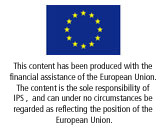By Amantha Perera
RIO DE JANERIO, Jun 20 (TerraViva) Even before the U.N. Conference on Sustainable Development opened here, one effect of the summit was already reverberating through the streets of Rio.
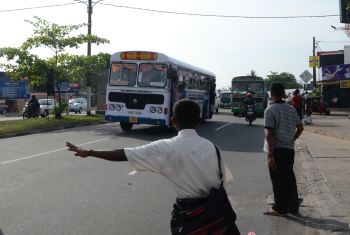
The public transport system in countries like Sri Lanka needs to work more efficiently if it is to be made sustainable. Credit: Indika Sriyan/IPS
As some 50,000 delegates, activists and others tried to get to various meetings and events, at many locations, like along the famous Copacabana beachfront, traffic slowed to a snail’s pace. Even government officials travelling to the opening of the conference complained of the traffic on social media.
Experts here say that Rio’s summit-related traffic woes are yet another example of decades of planning that prioritised cars over efficient public transport networks.
This mentality has propelled the transport sector to be the fastest-growing source of greenhouse gas emissions. The combined cost of congestion, air pollution, road accidents and transport-related climate change could be as high five to 10 percent of GDP per year.
“It is everywhere. We see it at home, we see it when we travel, and we see it in Rio,” Michael Replogle, global policy director and founder of the Institute for Transportation and Development Policy (ITDP), a U.S.-based organistaion that promotes sustainable transport systems, told Terra Viva.
To address this problem, eight of the world’s leading development banks, including the World Bank and the Asian Development Bank, have pledged 175 billion dollars in loans and grants for sustainable public transport systems to cut down on congestion and emissions over the next decade.
“It signals a shift in the priorities (of the banks) towards supporting sustainable public transport networks,” Replogle said.
Cornie Huizenga, convener of the Partnership on Sustainable Low Carbon Transport, told TerraViva that organisations promoting sustainable transport had lobbied hard in Rio to get the topic into the Rio declaration. Now that it has been included, they also got 18 voluntary commitments to improve sustainable transport systems.
“The next step was the money, that is where the banks came in. Now this funding will be available for countries who want to invest in sustainable public transport systems,” Huizenga said.
Both experts agreed that Asian and Latin American countries would have to take the lead in shifting to sustainable public transport systems for the move to have a significant global impact.
In the next two decades, half a billion people will be added to the urban populations in India and China. Proper planning of urban transport systems is vital to avoid this explosive growth, which will only add to congestion and emissions, they warned.
Replogle said that there were already signs that some Asian countries like India and China had realised the importance of an efficient public transport system.
U.N. officials said that the new commitments were likely to help poorer countries with scarce resources to at least try to make the shift.
“These unprecedented commitments have the promise to save hundreds of thousands of lives by cleaning the air and making roads safer, cutting congestion in hundreds of cities. They will create more efficient passenger and freight transportation, spurring sustainable urban economic growth,” said Joan Clos, executive director of UN-HABITAT, announcing the commitments.



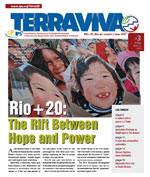
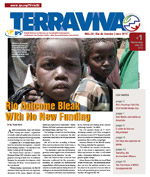
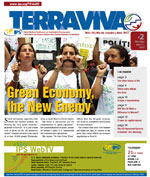

 Add to Google
Add to Google




